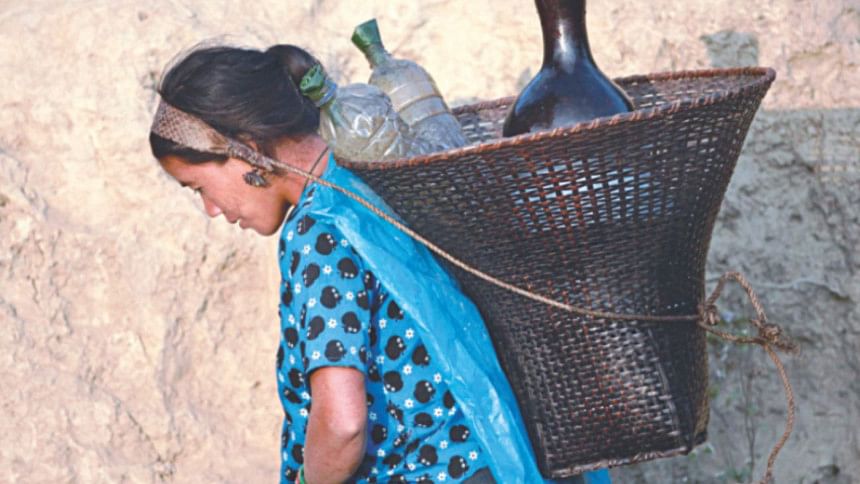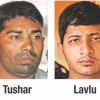Mro life on the Sangu bank

The lady of the house carried the first batch of drinking water from the nearby dying Sangu River with her two-month-old daughter in tow. She was being followed by her first daughter-in-law, who was five to six months pregnant at the time. She also carried a lot of water pots.
They dumped the load on a bamboo machan built for the purpose. The manchan was located inside the bamboo hut which was also set on a large bamboo platform matted with bamboo lattice.
This is how the days begin in Sangu Valley, an area yet untouched by the modernities of man.
Mro ladies do most of the domestic chores especially getting all the drinking and cooking water from the river. Every morning, they have to negotiate a very steep slope. The ladies carry a load of 20-25 kgs of water pots, usually with a kid riding piggy back.
Once they climb the river bank, they need to cross another set of twin ladders stuck to the perimeter fence of the compound with each side having at least six to seven steps. Then comes the final test: climbing a ladder to the platform housing the main shade. This ladder is of a single lanky log having several steps cut out two to four inches wide, placed at a 45 degrees angle to the platform.
Once perched on the machan, the ladies unload the water pots and finally decant the water into drinking pots made of dried up shell of Gourd (kodu). The gourds are often dried over a wooden furnace kept burning in the bamboo huts for 24 hours day, 365 days a year, indicating no paucity of firewood in the vicinity.
Soon after they put rice to boil or cook some dried wild tuber. They may also warm up leftover snails cooked the previous night.
The men and children soon wake and after the morning chores consume the old rice with water or hot rice with curry and then break out for resuming their work from the day earlier.
Men usually head for the forest either for mending crop fields or for getting suitable logs to mend the house. They also go to hunt wildlife, including Sambars, squirrels or any animal that moves and is not less than the size of mice. All households have guns, as they have had for ages. They also see many people with guns loitering in deep forest.
If there isn't a gun, they use catapults, bows and arrows or traps of many kinds to get their daily or weekly morsel of protein, if they are lucky.
When not hunting, almost all the adult members of a household head for the Jhum field either to first cut all the plants and allow these to dry for 30-60 days. After this, before the monsoon sets in, all the fields are burned.

 For all latest news, follow The Daily Star's Google News channel.
For all latest news, follow The Daily Star's Google News channel. 








Comments